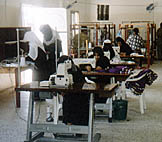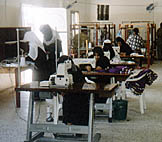
More Job Opportunities for Yemeni Women! HOW? [Archives:1998/51/Business & Economy]
December 21 1998
The Ministry of Labor and Vocational Training organized during 6-8 December, 1998, a seminar on the Right of Women to Work. The overall theme was ‘Toward Greater Female Participation in the Development Process.’

Those questions and many more are the at the core of this issue. As many speakers noted,
“It is hard for any society to make real progress if half of it is side-stepped”.
One solution is the high visibility approach. The state decided to gradually appoint women to high visibility posts. So we have some half a dozen deputy ministers. The choice of jobs is also intended for the consumption of foreigners, because the ministries chosen for these women are such as Ministry of Information, Ministry of Planning and Development, etc. But the approach can work, if it were to develop roots. The high visibility women can play important role models for our younger women.
Of course, urban-based facilities such as day-care services will help. This is especially true if the laws makes such services compulsory in large establishments, companies, ministries, etc.
More public awareness is another tool. Television programs, plays, articles, radio talks and public debates will go a long way in helping create a better environment for career women. The persistent rediculing, intimidation, and slander associated with the modern work environment discourages a lot of women. The legal and cultural environment must be adjusted.
First and foremost, education for girls is the greatest tool in empowering women. That is why the few elitist donor projects are a waste of resources, while more than 65% of all young girls cannot even attend primary school. This fact alone shows how far the nation has to go!
——
[archive-e:51-v:1998-y:1998-d:1998-12-21-p:./1998/iss51/b&e.htm]


